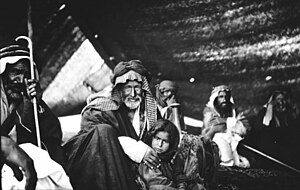
Because He’s God
There are times when God is silent and we really don’t have a clue why. That is exactly what happened to Job. Job was a righteous man – a pillar of the community – a godly father and a hard worker. Yet, in a moment of time, his world came crashing in on him in monumental proportions.
In one day, he lost all of his children and all of his livestock. Illness then began to ravage his body leaving excruciating boils festering with pain. His wife, overcome with her own grief, told him to curse God and die. His friends had dubbed him a secret sinner, because in their minds, tragedies like Job’s only happened to the vilest of sinners.
In contrast to their conclusion, it was not Job’s sin but his righteousness that caused his calamities. When you’re serving God and trying to lead your family to do the same, seeing the bottom drop out from under your feet can be a hard thing to swallow.
Job maintained his integrity (Job 27:3-5), but he really didn’t have a clue why he was going through such a difficult time in his life. He cried out to God…but God was silent. In Job 30:20, Job told the Lord, “I cry to you, O God, but you don’t answer. I stand before You, but you don’t even look.”
Job was experiencing a serious season of silence from God…it was unexplainable; and when he called on God, he received no explanation.
Job was never told why he had to experience such tragedy and heartache, but we are told that Job was given twice as much as he had to start with. His lost children could never be replaced, but he came through that season of silence with his integrity in tact and his faith affirmed.
We don’t always get to know why God chooses seasons of silence in our lives. But when God’s silence is deafening, we can rest in the reality that His silence does not mean that He is absent, nor does His silence mean that He is inactive. He is with us, He sees us and He is at work in our present circumstances.
Like a beautiful painting hanging in a museum. We never see the artist at work as he carefully brushes each stroke of vivid color on the blank canvas. We never hear a sound. We only see that he has secretly created something beautiful for the world to behold. When God places us in a season of silence, we may not see Him at work, but He is creating a beautiful masterpiece out of the blank canvas of our lives that the world may behold our heavenly Artist at work in His creation.
There’s an old poem written on a cellar wall in Cologne, Germany,where the Jews were hidden during World War II, which says:
“I believe in the sun, even when it isn’t shining.
I believe in love, even when I’m alone.
I believe in God, even when He’s silent.”
I hope this series has helped you get a clearer biblical picture of the various reasons why we might experience a season of silence. Perhaps this series may have even helped you pinpoint the reason for your own season of silence. I pray it has, sweet friend…I pray it has!
GOING DEEPER:
Are you experiencing a season of silence in some area of your life? Review the examples given and ask the Lord if there’s something He wants to show you today.
If you’re being tested by God’s silence, write out some ways you can successfully pass the test, with your integrity in tact and your faith affirmed.




















